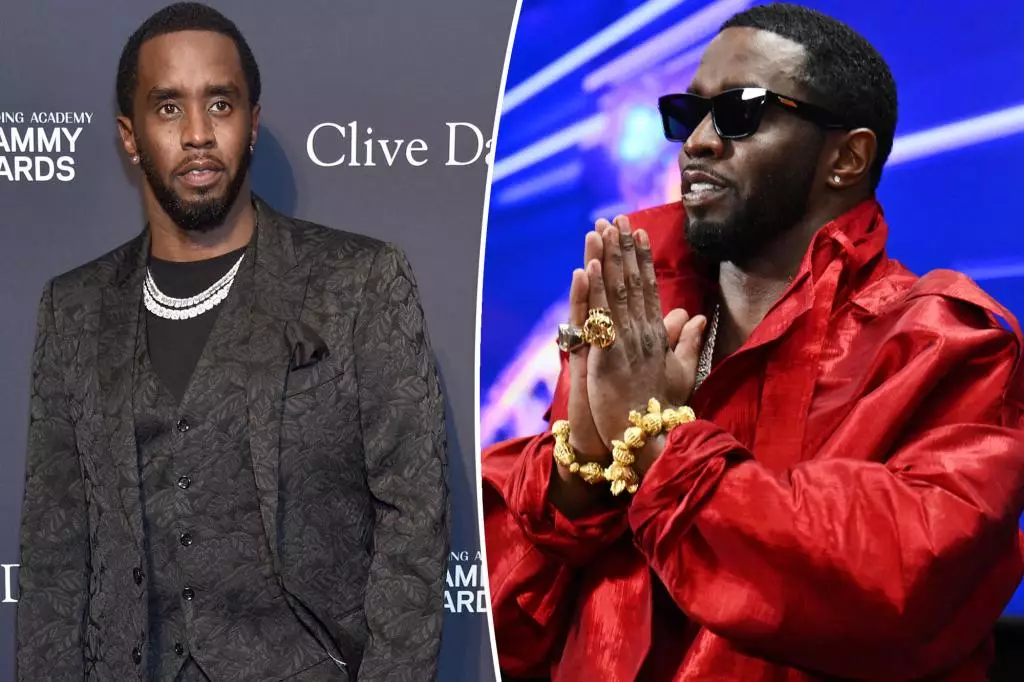The recent developments surrounding Sean “Diddy” Combs’ trial suggest a seismic shift in how celebrity misconduct is addressed in the justice system. As the hip-hop mogul faces serious racketeering and sex trafficking allegations, the implications reach far beyond the courtroom, challenging the narratives surrounding fame, power, and accountability. At the heart of this trial is not just the individual actions of Diddy but a broader commentary on an industry where boundaries have often been blurred.
Combs, a figure synonymous with the rise of hip-hop culture and music entrepreneurship, stands accused of wielding his fame as a weapon against vulnerable individuals. Allegations range from sexual abuse to bizarre claims involving drug-fueled parties dubbed “Freak Offs”—moments that blur the line between consensual and exploitative interactions. When the line between celebrity indulgence and criminal behavior is so thin, the trial could serve as a catalyst for redefining acceptable behavior in the entertainment industry.
The Mechanics of Jury Selection
The intricacies of jury selection itself have become a spectacle, underscoring the trial’s high stakes. Judge Arun Subramanian recently granted a postponement on finalizing jurors, demonstrating how the legal process can become a reality show in itself, with dramatic turns and unexpected delays. Adding to the complexity are the explicit videos that jurors may be exposed to—a disturbing but necessary component for understanding the case at hand.
The challenge lies in the jurors’ ability to remain impartial amid sensationalized media coverage and public opinion, especially with some potential jurors admitting that they had already seen footage of Combs in abusive situations. This poses an ethical dilemma: how do we ensure a fair trial when external opinions and conditioning can so heavily influence perspectives on guilt or innocence? This query is essential, considering the precedent this trial could set for future celebrity cases.
The Broader Implications for the Hip-Hop Community
Many in the hip-hop industry are watching closely, as the outcome may redefine the boundaries that have long existed in this tumultuous arena. The allegations against Diddy not only threaten his legacy but also cast a long shadow over an entire culture that has often portrayed excess and sexual liberation. The reality of a seasoned mogul being accused of forcing women into compromising situations underscores a potentially toxic underbelly within the celebrity lifestyle, challenging the notion that fame equals immunity.
Moreover, the response from Diddy’s legal team highlights a persistent attitude that seeks to invalidate the experiences of victims by framing allegations as mere moral judgments on consensual adult behaviors. As this trial unfolds, it becomes clear that the dialogue must shift toward creating safe spaces in industries historically plagued by power imbalances. Celebrities and executives must learn that privilege does not equate to permission, and accountability is non-negotiable.
Social Accountability Through Media Lens
The media’s handling of this case is also pivotal. News cycles that sensationalize abuse while giving voice to victim narratives provide critical context to the actual events. The coalescing of social media and traditional journalism amplifies public discourse around the trial, affecting the narrative surrounding Combs while also pressuring the judicial system to act judiciously.
As we witness the unfolding of jury selection and the trial itself, it becomes increasingly necessary to hold both the accused and the powerful accountable for their actions. Diddy’s case is not just about him; it mirrors a larger societal reckoning facing the entertainment industry and culture at large. If the justice system can navigate the complexities of celebrity status, it may herald a new era of responsibility for musicians and their influencers, risking public favor in the name of justice.
As the trial schedule continues, the stakes will only get higher. Can the legal system deliver justice, or will it merely reinforce the structures that allow for such egregious behavior to perpetuate under the guise of fame? The answers to these questions will likely shape not just the future of Sean Combs but the entire landscape of the hip-hop industry.
